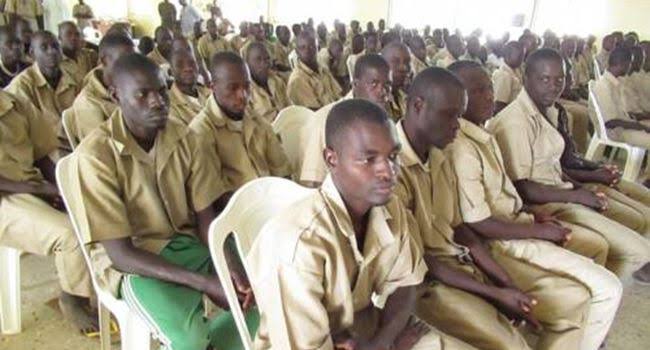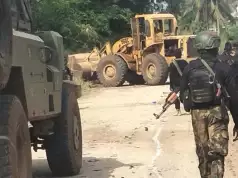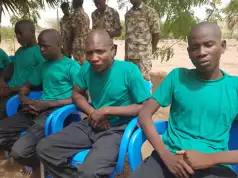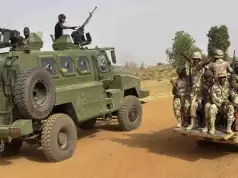There are concerns that the plan by the military to release another set of repentant terrorists into society could subvert the progress made so far in the war against insurgency.
No fewer than 613 rehabilitated terrorists undergoing de-radicalisation are scheduled to be handed over by the military authorities to their respective state governors.
This has, however, heightened fears that the repentant terrorists may have ulterior motives.
In July 2022, some repentant Boko Haram members, despite renouncing their membership of the terror group, were accused of having contact with their former colleagues.
The ex-terrorists were among the 800 persons who were recently reintegrated into the Bama community in Borno State and were resettled at the Government Girls Secondary School Bama.
The repentant terrorists, who were alleged to have sneaked out of Bama town, were said to have dealt in scrap metals with some Boko Haram terrorists in a market known as Daula located on the outskirts of Goniri village before the incident occurred.
Apart from this, the Kaduna State Governor, Nasir El-Rufai, and the Theatre Commander, Operation Hadin Kai, Major General Christopher Musa, had separately expressed doubt over the sincerity of the repentant terrorists in the past.
Speaking in an interview with one of our correspondents on Friday, a security expert, Timothy Avele, said the ex-terrorists could not be trusted.
He said, “On a personal level, I am not in support of the policy. You cannot release so-called repentant terrorists back into society when the war is still raging on. Who monitors them? How is the government or military sure of their loyalty to the country instead of their terrorist brothers still in the battlefield?
“As it stands now, neither the government nor the military, nor even the intelligence agencies can truly monitor these so-called repentant terrorists. We don’t have the technology to do so currently in Nigeria. We can only pray and hope that they will be good citizens, but there are no guarantees. “
But Brigadier General Bashir Adewinbi (retd.), on his part, dismissed the insinuations that those the military was planning to release to society would return to their old ways.
He added that the military would have learnt from past experience to ensure that such mistakes were not repeated, noting that the ex-terrorists would be closely monitored.
“The military must have learnt from the incident and ensured that they (repentant terrorists) might have been properly de-radicalised before releasing them into society. I think they will be watched closely and whoever is caught going back should be dealt with within the ambit of the law. I doubt that these ones will go back to their vomit,” Adewinbi stated.
Another retired officer, Brigadier General Sani Usman, said the issue of repentant terrorists required a holistic approach, adding that the Federal Government must develop a unique modality for dealing with the issue of repentant terrorists.
He also said the de-radicalisation and reintegration of the repentant terrorists must not be left in the hands of the military and the Borno State Government alone.
Usman said, “There is a need to follow up on the collaborative effort of the whole society approach. Beyond this, there is also a need for the Federal Government to come to the aid of the military and the Borno State Government in finding a procedure for handling the over 80,000 repentant terrorists.
“Some time ago, I heard the theatre commander talking about the Maiduguri initiative, that is fine but we are faced with a unique situation. There is nowhere in the world where you have such a huge number of terrorists surrender hence there is a need to come up with a unique approach to handle them. First, we need to work on our justice system. I have said on several occasions that people should not be allowed to get away with their crimes. We must ensure that justice is done not only to the victims, but to the suspects themselves.
“With due respect to Operation Safe Corridor, the Federal Government must intervene and set up a committee and critically evaluate them on the basis of their participation in the insurgency. Some of them were conscripted, while some of them were terrorist commanders. Some of them even participated in attacking their own towns, how can you think of and rehabilitate those people? The judiciary must be fully involved.
“We also have to dig deep into this issue to understand why they did what they did or are doing. That is where the criminal justice system administration has to come to play. It is a delicate and complex issue that has to be handled properly. We have assisted to reintegrate people elsewhere like Liberia, and Sierra Leone. We have come out with a blend of experience and best practices to effectively resolve the issue.”
PUNCH










